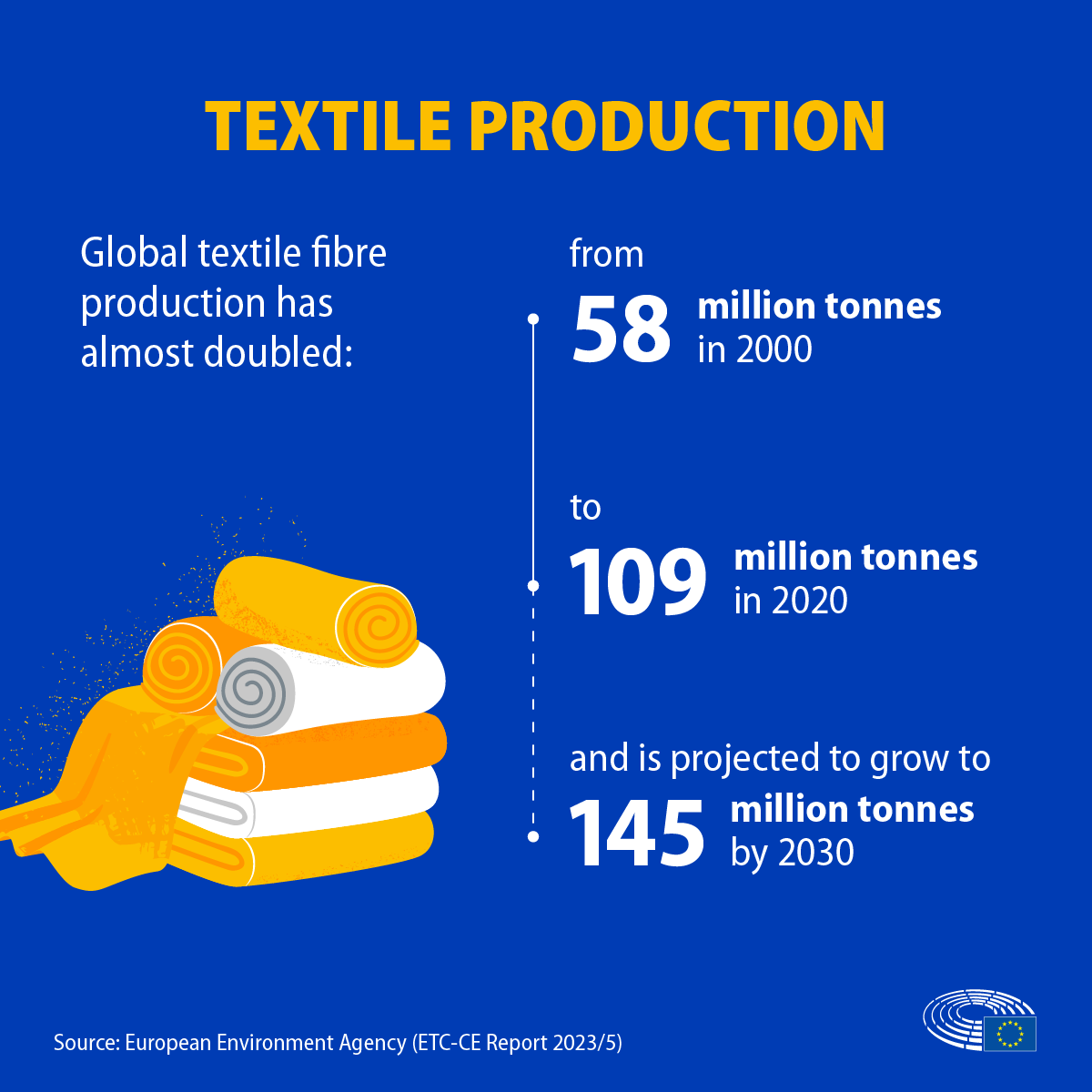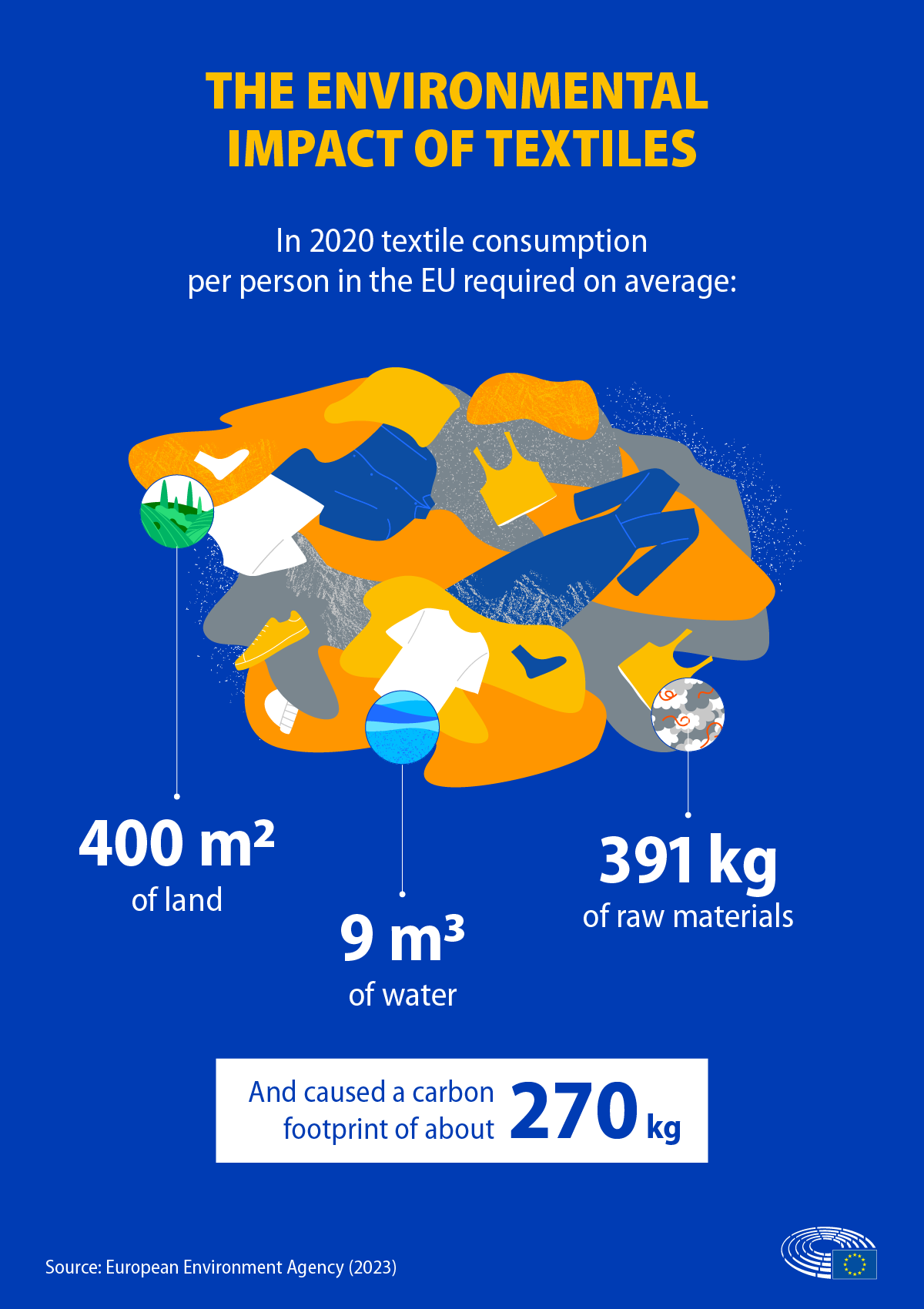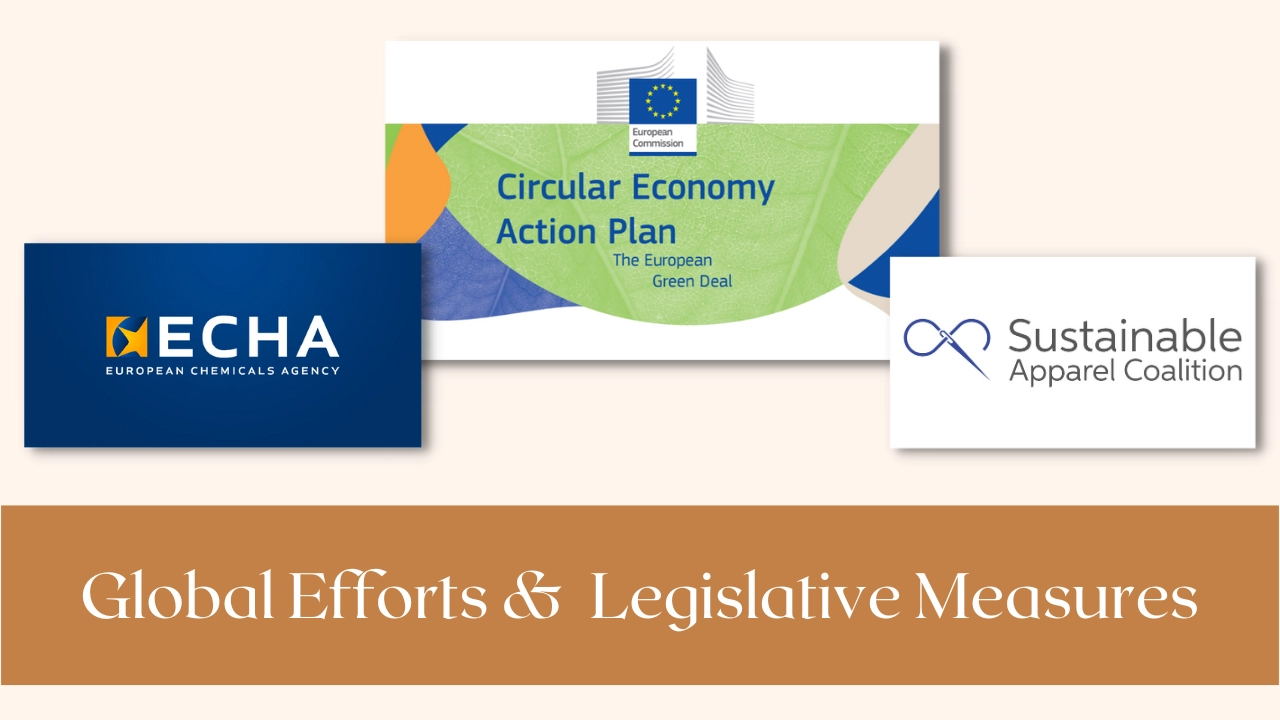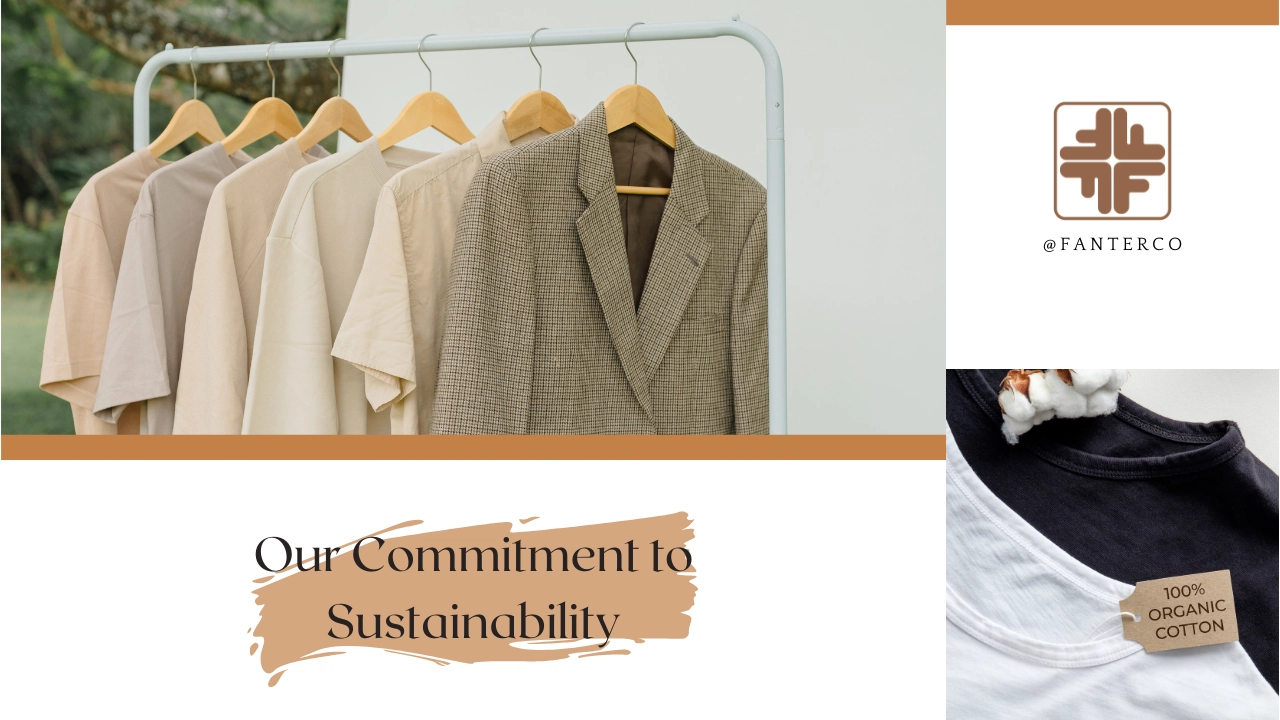Exploring the Potential of Recycled Polyester in Mitigating the Environmental Impact of Textile Consumption in the Fashion Industry
2023/9/12
Exploring the Potential of Recycled Polyester in Mitigating the Environmental Impact of Textile Consumption in the Fashion Industry
In an era characterized by rapid changes in fashion trends and the constant desire for new clothing, the environmental consequences of textile consumption have become a pressing concern. The allure of fast fashion and the culture of disposability have led to excessive production and disposal of garments, resulting in significant environmental degradation.
In this blog post, we delve into the realm of sustainable fashion and focus on the potential of recycled polyester to mitigate the environmental impact of textile consumption.
Understanding the Environmental Impact of Textile Consumption
The fashion industry wields a significant environmental footprint, with far-reaching consequences that span resource depletion, water pollution, and the alarming generation of excessive waste. In fact, recent studies have revealed that the fashion sector is responsible for around 10% of global carbon emissions and consumes an estimated 79 billion cubic meters of water annually. This is particularly concerning when considering that the production of a single cotton t-shirt can consume approximately 2,700 liters of water, equivalent to what an individual drinks over a three-year period.
The surge of fast fashion has undeniably exacerbated these issues, propagating a culture of disposability that perpetuates a cycle of overconsumption and rapid garment disposal. This phenomenon is strikingly evident when observing the average number of times a garment is worn before being discarded – often a mere seven to ten times. Consequently, landfills are inundated with discarded clothing, emitting methane gas as natural fibers degrade, and synthetic fibers release microplastics into the environment.


Textile production, as a whole, exacts a toll on vital resources. The extraction of raw materials necessitates substantial energy consumption, with polyester – a common textile material – demanding considerable fossil fuel usage. Furthermore, dyeing and finishing processes result in water contamination, as highlighted by the fact that approximately 20% of global industrial water pollution comes from textile treatment and dyeing.
Amidst this environmental predicament, the power to drive sustainable change rests within the hands of consumers. By proactively acquainting themselves with the intricate web of consequences embedded within their fashion choices, consumers can make a resounding impact. Opting for eco-friendly alternatives, such as clothing made from recycled polyester, serves as a pivotal step toward reshaping the industry's trajectory.
Through informed decisions and a preference for sustainable products, consumers inherently signal a demand for responsible production practices. This demand, in turn, resonates throughout the supply chain, prompting manufacturers to reconsider their sourcing strategies and embrace materials that are less resource-intensive. Recycled polyester, for instance, diverts discarded plastic bottles and other waste from landfills, addressing both the plastic pollution crisis and the demand for virgin polyester production.
In essence, consumer choices hold the potential to ignite a chain reaction that cascades from the individual to the industry level, propelling the fashion sector towards a more sustainable and harmonious coexistence with the planet.
Global Efforts and Legislative Measures
Amidst the pressing need to address the ecological impact of the fashion industry, a tapestry of global initiatives, regulations, and frameworks has emerged to drive responsible practices. These endeavors, championed by international coalitions, governmental bodies, and industry associations, reflect a collective commitment to fostering sustainability across the sector. Examples of these initiatives include:
The Sustainable Apparel Coalition (SAC): Comprising major brands and retailers, the SAC introduced the "Higg Index" – a suite of tools to measure the social and environmental performance of products. This initiative underscores the industry's shift towards transparency and sustainability, encouraging brands to assess their products' environmental impacts. The adoption of recycled polyester aligns seamlessly with these principles, contributing to more favorable Higg Index scores.
European Union's Circular Economy Action Plan: At the policy level, the European Union's Circular Economy Action Plan outlines strategies to promote circularity in various sectors, including fashion. By 2030, the plan aims to ensure that textiles are produced sustainably and designed for reuse or recycling. This initiative fosters an environment conducive to the utilization of recycled materials like polyester, driving a circular economy within the industry.

These collective endeavors pivot towards the promotion of recycled materials as an integral facet of sustainable practices. Recycled polyester, for instance, emerges as an embodiment of these initiatives, symbolizing a shift towards circularity, resource efficiency, and waste reduction.
The regulatory landscape, too, echoes this transformative momentum. Regulatory actions, such as the European Chemicals Agency's (ECHA) REACH regulations that govern chemical usage in textiles, underscore the importance of curbing the deployment of harmful chemicals during textile production. By adhering to these regulations, the industry safeguards ecosystems and upholds the well-being of workers.
In embracing circular economy principles, the industry adopts a holistic approach to sustainability. Policies that prioritize circularity, such as the European Union's Single-Use Plastics Directive, set forth a vision to minimize waste, prolong product lifecycles, and stimulate the adoption of materials like recycled polyester.
Ethical and Social Impacts
Beyond environmental considerations, the fashion industry also highlights ethical and social challenges. Many textile production processes are associated with exploitative labor practices that impact workers and local communities. While the production of recycled polyester (rPET) itself does not guarantee humane labor practices, opting for rPET products can actively contribute to endorsing equitable labor conditions and mitigating the adverse societal effects of fashion. It's important to note that rPET production processes can vary in their practices and policies.
By selecting rPET products, consumers might indirectly support supply chains with greater transparency and responsible practices. This choice signifies a consideration of broader societal and environmental concerns, potentially reflecting support for socially responsible brands. Additionally, as consumer preferences shape market trends, increased demand for rPET products could incentivize more brands to adopt sustainable and socially responsible practices.
While the connection between rPET and labor practices might not be direct, choosing rPET products aligns with promoting responsible consumption patterns and social consciousness. Understanding a brand's commitments and choosing those genuinely engaged in ethical practices can foster a more impactful contribution to fair labor practices and overall sustainability.
Fanterco's Commitment to Sustainability

At Fanterco, we are deeply committed to sustainability and the promotion of recycled polyester as a viable alternative to traditional textile materials. Our dedication to environmental responsibility is reflected in our initiatives, partnerships, and goals.
Through strategic partnerships with recycling facilities and ethical suppliers, we ensure the highest quality of recycled polyester in our products. We set ambitious goals to reduce our carbon footprint, minimize waste generation, and support fair labor practices. By incorporating recycled polyester into our product lines, we aim to inspire other industry players to embrace sustainable alternatives and join us in creating a positive impact on the planet.
In conclusion, the fashion industry stands at a critical juncture where the adoption of sustainable practices and materials is essential for mitigating its environmental impact. Recycled polyester presents a promising solution that addresses environmental, ethical, and social concerns associated with textile consumption. As consumers, we have the power to drive change through our choices. By supporting these initiatives and choosing recycled polyester products, we can contribute to a more sustainable and responsible fashion industry for the future.
Sources:
What is fast fashion and how is it damaging the planet: https://www.zurich.com/en/media/magazine/2021/fast-fashion-5-practical-ways-to-cut-the-carbon-from-your-closet
Clothed in Conservation: Fashion & Water: https://sustainablecampus.fsu.edu/blog/clothed-conservation-fashion-water
The impact of textile production and waste on the environment: https://www.europarl.europa.eu/news/en/headlines/society/20201208STO93327/the-impact-of-textile-production-and-waste-on-the-environment-infographics
The Sustainable Apparel Coalition (SAC): https://apparelcoalition.org/the-higg-index/
European Union's Circular Economy Action Plan: https://ec.europa.eu/environment/circular-economy/
European Chemicals Agency's (ECHA): https://echa.europa.eu/home
Goal 12 on Responsible Consumption and Production: https://sdgs.un.org/goals/goal12














